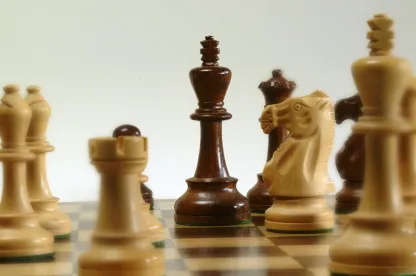In chess, your queen is a valuable piece that you want to protect, but there are times when strategically it makes sense to sacrifice your queen to gain a tactical advantage. The same can be true during attorney-conducted voir dire.
There are times when it is very clear that a juror is the best juror for your case. This is the person who will hear your case story, understand it, assimilate it, and be your advocate in the jury deliberation room. Your first reaction is to protect this juror and try to ensure they are not struck for cause based on their attitudes and beliefs. However, when jurors like this exist—and they do exist—their value to your case is also very clear to the other side, as these jurors typically do not remain silent. Instead, they freely discuss their opinions in trial questionnaires (SJQs) and/or in open court.
For instance, in a previous breach of contract case, we identified very early a juror who held attitudes consistent with our case theme (we represented the defense who had a counterclaim of breach of contract). This juror noted on a trial questionnaire that contracts should never be broken and that it was disappointing when people broke contracts without thinking of the consequences. She continued sharing her strong opinions in responses to additional SJQ questions and also did so in open court. It was clear to both sides that she would be a defense advocate.
While you may be able to save this juror from a cause strike and force the other side to use a peremptory strike to remove this juror from the panel (another tactical move that is strategically critical when striking jurors), these “good” jurors have an additional value for you. You can use them in open court to reinforce your themes by asking them key questions. This is a queen-sacrificing move, and this voir dire strategy allows the entire panel to hear your case theme—in a juror’s own words.
Using the example above, you want this person to discuss why a breach of contract is wrong from her perspective. In our case example, the juror “educated” the other panel members, as well as the entire venire, about how it is important to live up to your commitments or the contract does not have any meaning. She continued to discuss the importance of contracts with little prompting on our attorney’s part. We call this “poisoning the panel” in our favor.
When representing a corporate defendant, we typically prefer that jurors who hold strong attitudes (anti-corporation, for instance) do not engage in too much talking, as we don’t want them to influence others with their opinions on the subject; we just need them to say enough to establish a strong cause strike. However, when there is a good juror for our side who will be struck by the opposition anyway, we will strategically sacrifice that person to favorably “poison” the panel.
The questioning attorney has many goals to keep in mind during voir dire—with the priority being to identify biased jurors and strike them for cause—and time is often limited, so surrendering your key juror may not always take primary focus. But remember, in the case where it is clear you will lose the juror to a peremptory strike anyway, you can use this sacrificial strategy to gain a maximum advantage before that happens.




 />i
/>i
